Iranian Teachers Union Slams Execution Of Protesters
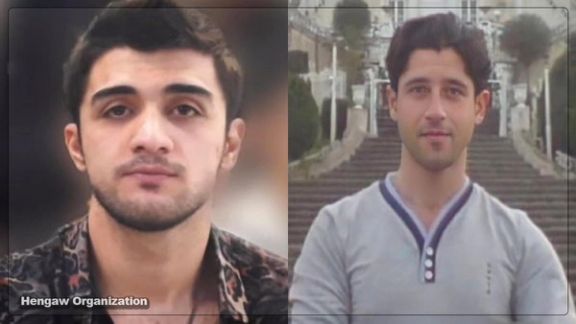
An Iranian teachers’ union has issued a statement to slam the execution of youths, demanding that the death sentences must be cancelled as soon as possible

An Iranian teachers’ union has issued a statement to slam the execution of youths, demanding that the death sentences must be cancelled as soon as possible
The Coordination Council of Iranian Teachers’ Trade Associations on Tuesday also called for the resumption of fair trials for the defendants in the presence of lawyers chosen by the accused.
The statement also pointed out that Mohammad Hosseini and Mohammad Mehdi Karami, who were hanged by the regime on Saturday, were tried without going through legal formalities and the possibility of having a selected lawyer.
“However, the arrogant government thinks by hasty executions, it can cover up its inefficiency, which is the main cause of the recent uprising of those who lost their lives,” reiterated the council.
It also added that cruel verdicts are issued to create terror in the society so that the Islamic Republic can silence the voice of protesters against oppression, discrimination, and injustice.
Iran Human Rights Organization announced on Mondaythat at least 109 Iranian protesters are currently at risk of execution or facing death penalty sentences.
The Oslo-based organization said in its latest report that this figure is a minimum estimate as most families are under pressure to stay quiet, and the real number is believed to be much higher.
It also announced that at least 481 people including 64 children and 35 women, have been killed by security forces since mid-September, following the death of Mahsa Amini in police custody, which triggered the protests.
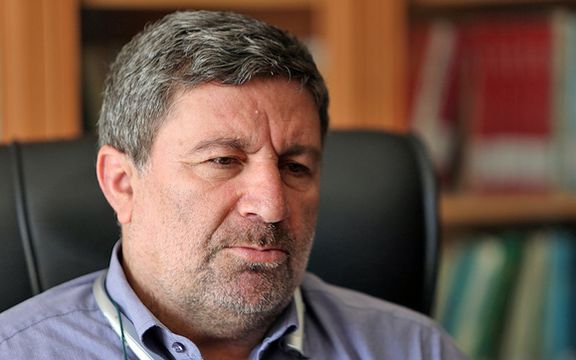
The managing editor of Tehran’s leading reformist daily Etemad says the paper decided not to cover an important topic because of constant government pressure.
Elias Hazrati, who is also the proprietor of the newspaper explained that restrictions imposed by the government have made it impossible for the editors to do their job according to the daily's editorial standards.
Hazrati said in the editorial that readers had complained why the paper did not carry a report on the anniversary of the Ukrainian plane, shot down by the Revolutionary Guard on January 8, 2020, as it took off from Tehran.
He stated that "in fact, Etemad's editors had prepared several reports on the topic with added value by its analysts. But Etemad's editorial standards were not compatible with the closed circle some policymakers and state institutions have drawn around the media to restrict their activities."
"When we found out how limited the scope of our articles should be, we decided not to publish the story at all," wrote Hazrati. However, his statement revealed that at least sensitive articles are read and censored by individuals other than the daily's editors before publication. He also spoke about directives that were issued by "some institutions" to censor the media.
The statement by Hazrati, which came in an editorial entitled "A transparent report to our readers" in the January 9 issue of Etemad, was made a week after security forces stormed the home of the daily's political editor Medi Beik's and arrested him after confiscating his cell phone, computer and other equipment.
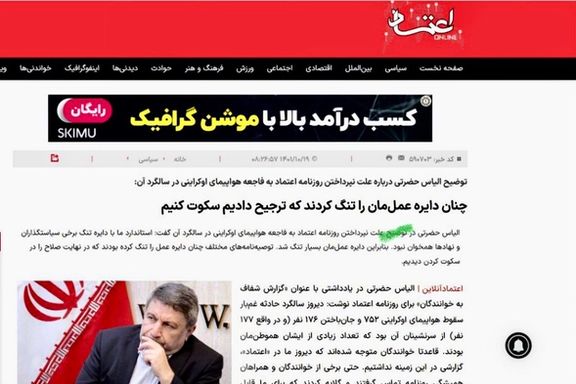
When Beik's wife broke the news about his arrest, his colleagues in the newspaper expressed support for him in social media comments. On January 7 several columnists as well as Hazrati himself expressed support for Beik on the frontpage of the newspaper, pointing out that he should not be jailed for doing his job.
Beik became very well-known for publishing a series of reports about young protesters in prison. In one particular case, Amir Hossein Rahimi, a 15 year-old jailed protesters with shotgun pellets in his head and neck whose mother did not have the bail money to secure his release, was finally freed thanks to an article in Etemad about the case. The shotgun pellets were subsequently taken out in a Tehran hospital.
Hazrati’s reference to "institutions" refers to the IRGC and the intelligence ministry in the Iranian political jargon. Although IRGC's aerospace commander Amir Ali Hajizadeh has admitted that it was an IRGC battery that fired two missiles on the Ukrainian aircraft, still, discussing the matter is some sort of taboo for the press. Even the Iranian Judiciary has not been able to convince the families of the victims why due judicial process has not been observed to determine the main culprits.
Hazrati said: "We trust that our policy is quite clear. We believe that well-documented reports by Etemad and other media outlets can pave the way for the people's trust in the government." He pointed out that the arguments about the downing of the aircraft and secrecy around the case has eroded this trust. However, he noted that perhaps the authorities do not want any coverage of the matter while a court is investigating the case.
"But we believe that free media are part of responsible governance. Democratic countries welcome transparent news dissemination. And experts and the family members of the victims have a right to speak about the case outside the court," he said.
The story has been controversial from the start as Iranian officials denied any attack on the aircraft for three days before admitting that it was hit by two missiles. Still, no one wants to accept any responsibility.
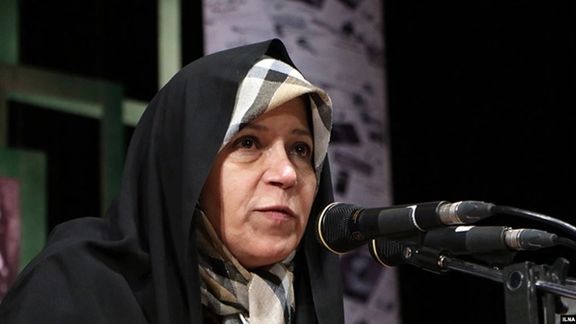
Former lawmaker and daughter of Iran's former President Akbar Hashemi Rafsanjani has been sentenced to five years in prison for criticizing the Iranian regime.
Faezeh Hashemi’s lawyer, Neda Shams, wrote on Twitter Tuesday that her client was sentenced to five years in prison at the preliminary stage.
She also noted that she cannot comment on the verdict as it is not final yet and her client is still in prison with other charges against her.
According to ISNA, Faezeh Hashemi was indicted on July 3 for “propaganda against the establishment” and “insulting the sanctities”.
Hashemi was arrested in September, days after popular protests broke out in Iran.
Speaking on the social audio app Clubhouse, the political activist had said that removing the IRGC from the list of Foreign Terrorist Organizations (FTO) is not in Iran's interest.
Negotiations to restore Iran’s 2015 nuclear deal encountered complications as Tehran demanded the IRGC be removed from the terrorist list.
Footage of Hashemi Rafsanjani also surfaced in media, talking about Prophet Muhammad and how he used his wife’s money to advertise Islam.
Hashemi is known for her critical remarks about the Islamic Republic, its leaders, and policies. Her father, who for decades was the second most powerful man in the Islamic Republic, and helped bring Supreme Leader Ali Khamenei to power in 1989, allowed the IRGC to become an economic player in the country.
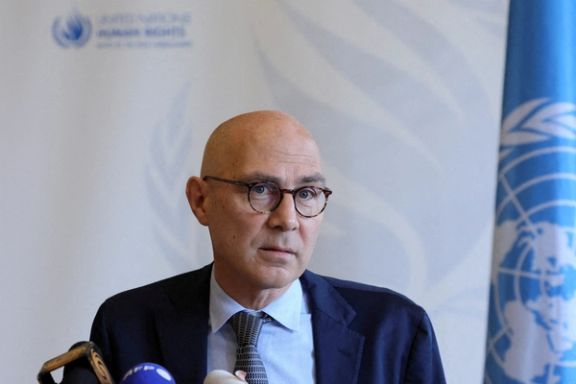
The UN human rights chief says the death penalty is being weaponized by Iran's government to intimidate the population, and the executions amount to "state sanctioned killing".
"The weaponization of criminal procedures to punish people for exercising their basic rights – such as those participating in or organizing demonstrations - amounts to state sanctioned killing," UN High Commissioner for Human Rights Volker Turk said in a statement, saying the executions violated international human rights law.
Iran hanged two men on Saturday for allegedly killing a member of the security forces during nationwide protests and more have since been sentenced to death. The U.N. Human Rights office has received information that two further executions are imminent, the statement said.
The UN Human Rights Council voted November 24 to launch an investigation into Tehran's deadly repression against protesters.
Security forces have killed more than 500 people since mid-September when popular protests erupted after a 22-year-old woman died in ‘hijab police’ custody. The government has also arrested around 20,000 people according to estimates by human rights groups.
Iran's judiciary said Monday that a court has sentenced three others to death for “war against God”. The Oslo-based Iran Human Rights Organization announced in its latest report that at least 100 detainees face a death sentence or execution and most families are under pressure to stay quiet, and the real number is believed to be much higher.
Western government have reacted with outrage to the executions and the European Union is considering further sanctions on Islamic Republic’s entities and officials.
With reporting by Reuters
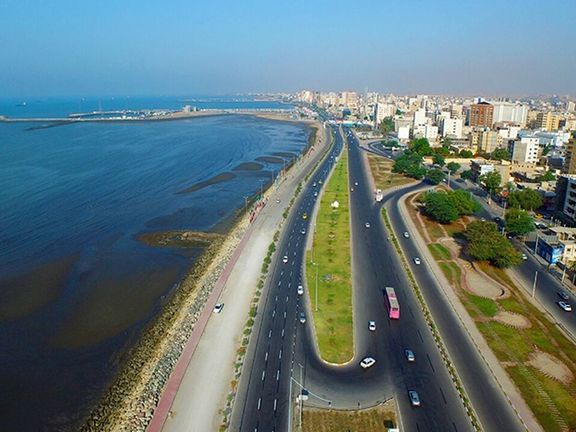
Iran’s judiciary chief says tens of ships have arrived in territorial waters of the country, but the Islamic Republic cannot unload them.
Gholam Hossein Mohseni Ejei said Monday that Iran must pay fines for the delay in discharging cargos, but he did not mention why the ships are waiting at the ports.
It seems that the delay in payments has disrupted flows of goods into the country. Most ships carrying food, animal feed and commodities receive full payment right before they dock at a port to unload their cargo. If payment is not arranged, the ships wait off the coast.
“Some of these ships are paid $25,000-65,000 per day as demurrage,” noted Ejei.
Some of these goods, which are not unloaded, added Ejei, “are damaged due to long waits by the ships, but these goods are necessary for the country,” he underlined.
He called on judicial officials to follow up the case through the Central Bank of Iran to ensure the cargos would be discharged soon.
Iran's currency has dropped by 30 percent since September and both the government and private importers face a financial crunch.
Food is exempt from the US sanctions on Iran over its nuclear program, but the impact of the sanctions on Iran's financial system have created complex payment arrangements with international companies.
Reuters reported on December 21, that dozens of merchant ships with grains and sugar are stuck outside Iranian ports after weeks of delays in payment.
Most of the carrier ships are stuck outside the major Iranian ports of Bandar Imam Khomeini and Bandar Abbas, ship tracking data on Refinitiv showed.
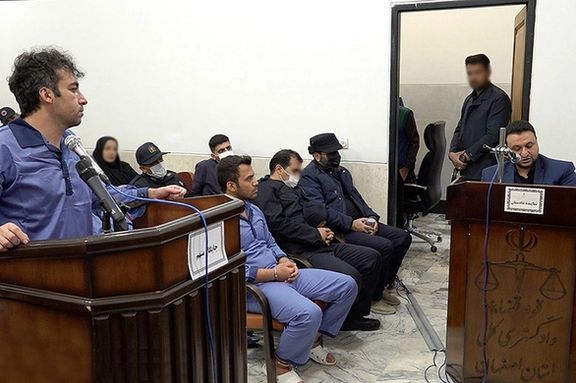
Amid outrage over the execution of two protesters Saturday, Iran's judiciary said Monday that a court has sentenced three others to death for “war against God”.
The three men – Saleh Mir-Hashemi, Majid Kazemi, and Saeed Yaghoubi –were charged with ‘moharebeh’, meaning “war against God”, a vague religious concept, for their alleged role in the shooting of three government agents during a day of protests at Khane-ye Esfahan neighborhood on November 16.
The ‘Khane-ye Esfahan case’ involves several other protesters. Another defendant, footballer Amir Nasr-Azadani, was sentenced to a total of twenty-one years in prison on charges of “aiding in the war against God and “assembly and collusion leading to security-related crimes”.
The sentences can be appealed, the judiciary said, but in other cases involving protesters, the appeal process has not overturned verdicts in sham trials.
The convictions were based on confessions made in the absence of lawyers appointed by the accused. As in many other security-related cases, the judiciary has published videos in which the accused confess to the crimes they were charged with.
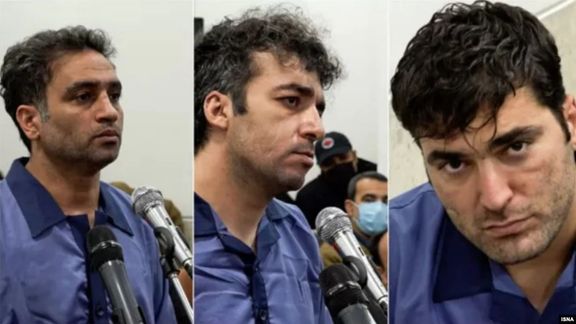
Many security prisoners who have made such confessions, usually for television audiences, later recanted saying they were made under torture and duress.
In 2019, Mazyar Ebrahimi, a businessman, disclosed how he was tortured non-stop for forty days by the intelligence ministry into confessing to spying for Israel and assassinating Iranian nuclear scientists between 2010 and 2012.
Ebrahimi’s confessions were broadcast by the state broadcaster (IRIB). He also said the judge who tried him and others on these bogus charges, Abolghasem Salavati constantly threatened them with a death sentence to make them accept “to cooperate” with their interrogators and accept to play in the script they had written.
Salavati has recently sentenced several protesters, including Mohammad Beroghani and Saman Seydi, to death.
In a rare incident, Ebrahimi and others were exonerated when the rival IRGC intelligence found discrepancies in the testimonies fabricated by the intelligence ministry.
The Islamic Republic has so far hanged four protesters: Mohsen Mirshekari in Tehran and Majidreza Rahnavard in Mashhad on December 12, and Mohammad-Mehdi Karami and Seyed Mohammad Hosseini in Karaj on Saturday.
“Mohammad-Mehdi Karami and [Seyed] Mohammad Hosseini were both executed in gross violation of the law and their right to have appointed attorneys,” prominent human rights lawyer Nasrin Sotoudeh said in a Facebook post Monday.
“The right to freely choose a lawyer is one of the most important reasons for the faultiness of these [death and prison] sentences,” she wrote, adding that hasty executions are “sheer murder” by lack of due process in the trials.
Hosseini’s lawyer, Ali Sharifzadeh-Ardakani, who was only allowed to represent him after the trial said that the judiciary carried out the executions so hastily that they had no time for taking any legal action in these cases. “I was on my way to the Supreme Court [to apply for a re-trial] when I heard my client had been executed,” he said in a tweet Saturday.
Sharifzadeh-Ardakani was summoned by the public and revolutionary prosecutor of Karaj on Tuesday, a day after his client was hanged, charged with “propaganda against the regime” for speaking about his client’s tortures. He was released on bail on the same day.
“I met with Seyed-Mohammad [Hosseini] at Karaj Prison [for the first time]. He cried through his account of tortures, being beaten with tied hands and legs and blindfolded, to being kicked in the head and losing consciousness, the soles of his feet beaten with an iron rod to being tased in different parts of the body,” Sharifzadeh had said in a tweet on December 18.
Mohammad Aghasi, the lawyer of Mohammad-Mehdi Karami, also said in an interview that “They executed my client so quickly that they didn't even give him a chance to write a petition for retrial.”